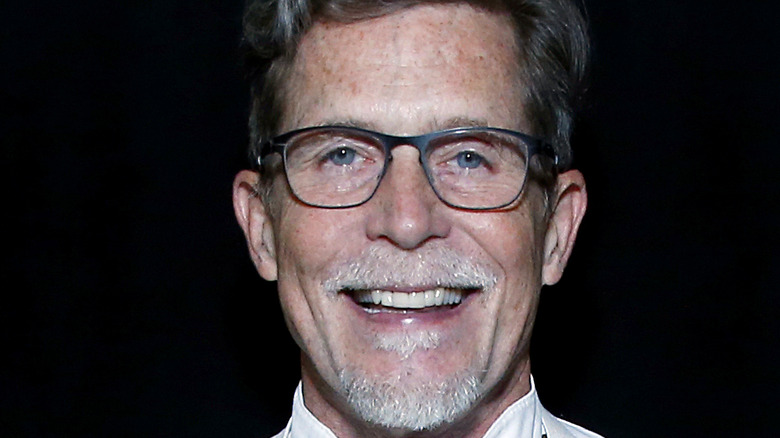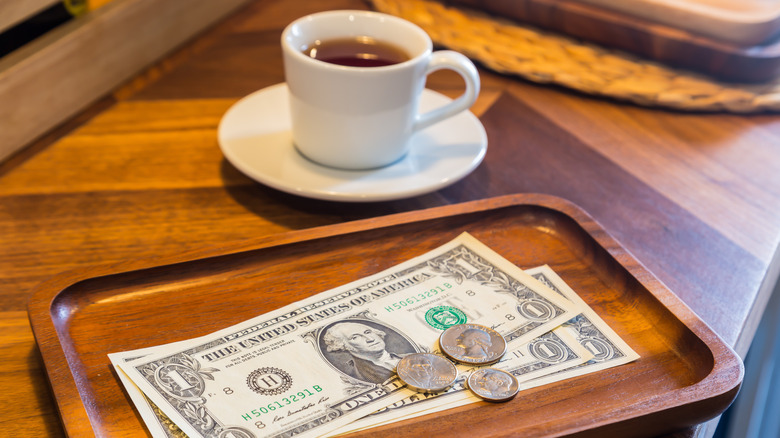Rick Bayless' Service Charge Policy Confronts The Origins Of Tipping In Slavery
You may know Rick Bayless from his roles on "Top Chef" and the PBS series "Mexico: One Plate at a Time," or you may have eaten at one of his restaurants. The chef has a Michelin star and several James Beard awards under his belt, as well as his own YouTube channel where he walks through some of his favorite Mexican-inspired dishes.
Like many of his fellow chefs and restaurateurs, Bayless added the word "activist" to his multi-hyphenate title during the dining-closure scourge of 2020. He became heavily involved with the Independent Restaurant Coalition, hoping to use his platform as a voice for restaurant workers and owners affected by the pandemic. He told Yelp about his lobbying efforts to pass the Restaurants Act, which would devote $120 billion to "stabilize the restaurant industry." Sadly, the bill failed to pass the Senate.
Bayless also channels his activism toward another hot-button topic: tipping. He approved a change to the gratuity clause across his restaurant mini-empire in 2020, adding a message about the racist origins of the modern-day restaurant tip.
Automatic gratuity ensures equal pay for staff
It's not uncommon for restaurant and service industry workers to rely on tips even more than their standard paycheck. But for Rick Bayless and droves of other restaurateurs, that system is proving to be both unequal and unsustainable. As such, the service-charge policy at all of Bayless' restaurants, which was initiated in the early months of the pandemic to provide staff with extra support during a very tough time in the dining world, guarantees equal gratuity rates to all servers. "We wanted to ensure [our staff] a paycheck they could count on rather than leaving them buffeted financially by fluctuating business and the whims of our guests," reads the policy.
Even as restaurants recover and regain their strength, the policy remains to "[contribute] toward an equitable wage" for all staff members. In addition to the matter of equal pay, the policy also touches on the "problematic roots of tipping as a legacy of slavery" in the U.S.
For Black Americans, tips were once a wage itself
Did you know that tipping is a relatively recent practice in the U.S.? "It's the legacy of slavery that turned the tip in the United States from a bonus or extra on top of a wage, to a wage itself," Saru Jayaraman, the co-founder of the Restaurant Opportunities Centers United, told the Shriver Center on Poverty Law. After the Civil War, Black restaurant and hospitality workers who were newly freed from slavery had to rely on tips for the entirety of their income — not just as an extra bonus. That meant that some workers got paid, while others served customers all day for little to no money at all.
A century-and-a-half later, many workers still count on tips to round out their minimum-wage paychecks. According to Rick Bayless' gratuity policy, his brands "[recognize] how [the legacy of tipping] contributes to present-day issues in the hospitality industry." Of course, guests are welcome to leave an additional tip on top of the automatic service charge.


